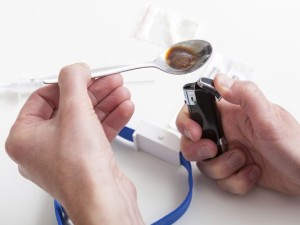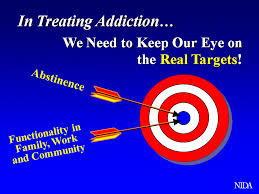How well do you know Heroin Drug
How well do you know Heroin Drug: How do I know if I have Heroin Problem?

How well do you know Heroin Drug? The information about heroin is very important in the journey to heroin addiction recovery and creating awareness is just the beginning
For a couple of days we have been addressing various issues concerning drug abuse and particularly heroin. We noticed that the rate at which this is increasing is worrying and as professionals at AWAREmed Health and Wellness Resource Center under the able leadership of doctor Dalal Akoury we will continue giving our contribution to ensure that the prevalence of substance abuse is reduced to manageable levels. In our interaction with clients and patients from time to time, we have noticed that the public are not really informed of the consequences of these drug abuses. And most worrying is that even if they are directly affected, it takes others to notice but the real victim is not even aware that he is addicted to heroin or any other drug. We want to use this forum to further create more awareness of the prevalence of heroin and the question we want to respond to is “how well do you know heroin drug?” to effectively respond to this, we have segmented the discussion in four question of great concern. We hope that this will help you understand better what heroin really is and how you can protect yourself from the scourge. The four questions of concerns include:
- How Do I Know if I Have a Heroin Problem?
- What is Heroin and how is it Used?
- Effects of Heroin Use
- Treatment for Heroin and Opiate Addiction
Heroin is an illegal, highly addictive drug. It is not just the most abused drug but it is also the most rapidly acting of the opiates. These characteristics have put it to be the leading opiate abused in the global opiate market. With the help of the professionals at AWAREmed Health and Wellness Resource Center, let us get to business of responding to these concerns.
How well do you know Heroin Drug: How Do I Know if I Have a Heroin Problem?
It is always said that knowledge is power and that luck of it is the basis of many problems we are facing today. Understanding that background, we want to be as informative as possible so that by the end of this article, you will be able to make informed decisions about substance abuse. Heroin Anonymous developed some questions which were tailored into helping individuals be on top of any possibility of heroin addiction. How you respond to the questions below will give a very strong indication about your position with heroin. Like for instance how would you respond to the following?
- Do you isolate yourself when using heroin? In other wards you are avoiding people when using heroin, does that describe you?
- Have you ever used more heroin than you planned? If you have records of usage it will be helpful however you can also evaluate this by auditing your spending on heroin. Has it been constant or has it been fluctuating?
- Has your heroin usage interfered with your job or school? Take stock of how many times you have lied to be sick and stayed off duty or if you have not been meeting your assignment deadlines inconsideration.
- Do you find yourself concealing your heroin usage from others? Interesting, are you proud of this habit?
- Are you experiencing financial difficulties due to your heroin usage? You may not realize this if you have more than enough to spend but evaluate from your spending how much is going into heroin account, in other word has it become one of the item you spend on heavily?
- Has your heroin usage caused problems with your partner/spouse or family? Take a closer look at your present and your past before you got into heroin, are you still faithful in that relationship? How often do you hide certain information from your family? Dig deep in your past and respond honestly.
- Do you wish you could stop using heroin and find that you are unable to quit? Many times users are very frustrated with their habits and are struggling to quit but because they are deeply hooked they are unable. Does this describe your situation?
- Have you experienced legal difficulties from your heroin usage and yet you continue to use? Of course heroin is illegal and the authorities will not let you go without being punished. You may have escaped once or twice but will you escape forever?
- Do you consume the entire amount of heroin you have and then immediately desire to get more? And have you become extravagant all over sudden?
- Have you failed to cut down or quit heroin entirely? You know this is an illegality and probably you have been making effort of quitting but you keep meeting resistance and challenges. Does this describe you?
- Do you wish you had never taken that first hit, line, or injection of heroin? In your years of addiction, somewhere along the way have you had any regret however small?
How well do you know Heroin Drug: It is possible to Quit Heroin?
Before we continue with the remaining question, the focus of this article is to bring hope to all heroin addicts and not to condemn them. We started by asking how well do you know heroin drug? And up to that point I want to inform you that if all the answers you are giving are pointing to the wrong direction of heroin addiction, you are on the right track of making the right decision. A decision for health and good life and doctor Akoury and her team of experts are very much ready and willing to help you do through this difficulty. AWAREmed Health and Wellness Resource Center team of experts are only waiting to hear from you primarily to help you in the recovery process. All you need to do is to schedule for an appointment with doctor Dalal Akoury and that which you have not been able to solve alone, will be professionally addressed. As you consider making that good decision, let us continue highlighting the indicators of heroin addiction in their question forms.
- Have you continued to use heroin even after you experienced an overdose?
- Do you fear other people will find out about your heroin usage?
- Are you preoccupied with getting heroin when you do not have it?
- Do you have to use larger amounts of heroin to get the same high you once experienced?
- Has anyone ever told you that you may have a problem?
- Have you ever lied or misled those around you about how much or how often you use heroin?
- Do you use heroin at work or in the bathroom in public facilities?
- Have you ever hocked something in order to buy heroin?
- Are you afraid that if you stop using heroin that you will not be able to function?
- Do you find yourself doing things that you are ashamed of in order to purchase heroin?
- Have you ever stolen drugs or money from family or friends in order to buy heroin?
Finally if your answer to any of these 22 questions is “Yes” then you need help. You don’t have to answer all of them yes; just one is enough to indicate the heroin problem. Like I have indicated talking to doctor Akoury will be the starting point and by the end of it your life will change for good leaving you to enjoy life without regrets. The remaining three concerns will be addressed in the next article, so stay on the link and get the best of health information.
How well do you know Heroin Drug: How do I know if I have Heroin Problem?




